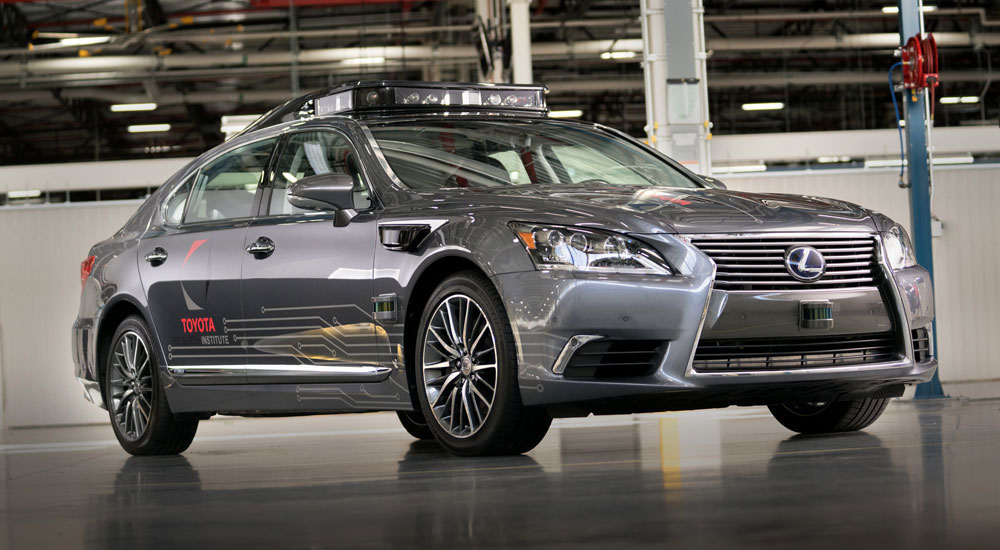For better or worse, self-driving cars have become the central driving force of automotive technology, paced only by electrification and battery-powered vehicles as the dominant storylines in the industry. These two market forces have the ability to create and destroy the largest car companies in the world, and it’s in this whirlwind that Toyota (and by extension, Lexus) finds itself struggling to keep up with competitors.
As a way to jumpstart its position, Toyota has embarked on an ambitious (and expensive) path of development, funneling over $4 billion of investment into robotics and AI research. The latest issue of Bloomberg Businessweek takes a deep look at this gamble to stay with the pack:
Just four years ago, Akio Toyoda, the [Toyota] president, was saying his company would pursue self-driving vehicles only after one beat a human driver—for instance, him—in a marathon road race. He’s not saying that anymore, because Toyota has too much to lose.
If the company fails to pick up the pace, Toyota could, in one version of the future, face the humiliation of becoming a mere steel-box supplier to upstarts such as Waymo and Baidu. Toyoda himself has singled out tech companies as “our new rivals, with speed many times greater than our own.” He added: “A life-or-death battle has begun in a world of unknowns.”
A paradox underlies these initiatives: Toyota doesn’t necessarily buy the hype about self-driving vehicles quickly taking control of roads in the U.S. and beyond. [Vice president for automated driving research John] Leonard himself isn’t sold. “Taking me from Cambridge to Logan Airport with no driver in any Boston weather or traffic condition—that might not be in my lifetime,” he says. On its website, the research institute describes its goal as to “someday develop a vehicle that is incapable of causing a crash.” It doesn’t specify whether this uncrashable car would be driverless.
(This is a significant article, outlining the past, present and future of Toyota’s autonomous driving initiatives. Highly recommended reading.)


Comments